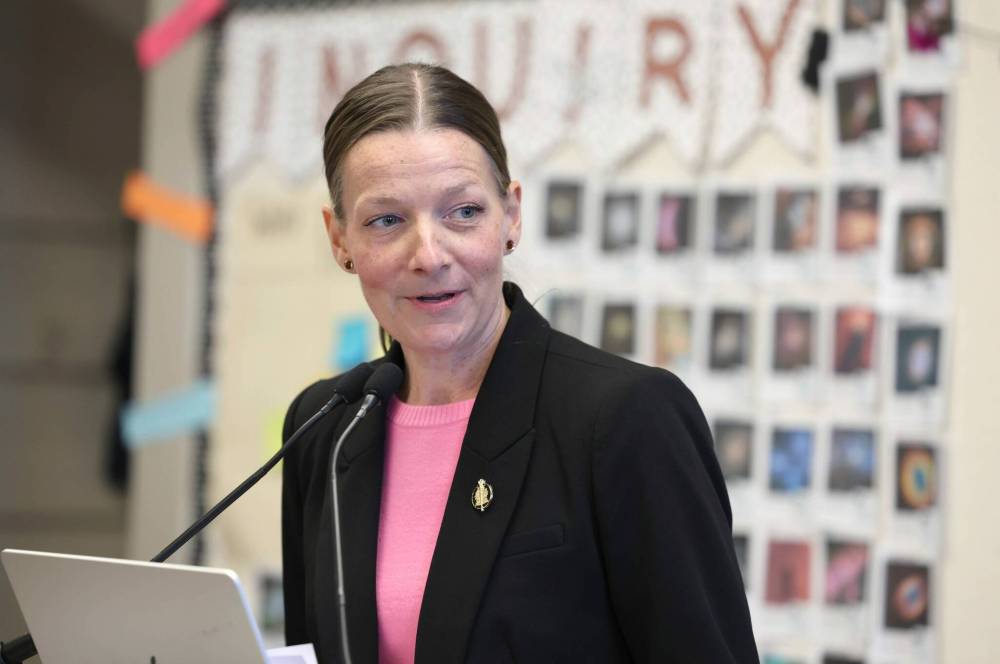Higher school taxes a preventable problem
Advertisement
Read this article for free:
or
Already have an account? Log in here »
To continue reading, please subscribe:
Monthly Digital Subscription
$0 for the first 4 weeks*
- Enjoy unlimited reading on winnipegfreepress.com
- Read the E-Edition, our digital replica newspaper
- Access News Break, our award-winning app
- Play interactive puzzles
*No charge for 4 weeks then price increases to the regular rate of $19.00 plus GST every four weeks. Offer available to new and qualified returning subscribers only. Cancel any time.
Monthly Digital Subscription
$4.75/week*
- Enjoy unlimited reading on winnipegfreepress.com
- Read the E-Edition, our digital replica newspaper
- Access News Break, our award-winning app
- Play interactive puzzles
*Billed as $19 plus GST every four weeks. Cancel any time.
To continue reading, please subscribe:
Add Free Press access to your Brandon Sun subscription for only an additional
$1 for the first 4 weeks*
*Your next subscription payment will increase by $1.00 and you will be charged $16.99 plus GST for four weeks. After four weeks, your payment will increase to $23.99 plus GST every four weeks.
Read unlimited articles for free today:
or
Already have an account? Log in here »
Tens of thousands of Manitoba home and business owners face the prospect of permanent double-digit increases to the school tax portion of their property tax bills. Few of them are aware of that likelihood, let alone the reasons why.
Earlier this month, senior officials employed by the Brandon School Division advised the division’s board of trustees (my son is a board member) that the BSD is facing an increase in labour costs of almost $7 million for the coming fiscal year. It could necessitate a property tax hike of greater than 10 per cent if the level of provincial funding for the division does not increase.
That percentage doesn’t include other budgetary pressures, including inflationary costs for items such as utilities, let alone restoring cuts that were made to last year’s budget, which increased the school tax by 6.78 per cent.

Ruth Bonneville / Free Press
Education Minister Tracy Schmidt admits that provincewide teachers’ wage and bargaining harmonization will affect school boards differently — but the government hasn’t yet addressed the issue.
Add in those factors and Brandon property owners could be slammed with a school tax increase closer to 20 per cent for 2026.
Brandon isn’t alone in facing this threat. BSD board chair Linda Ross (no relation) says that provincewide teacher bargaining and wage harmonization — a new provincial policy that standardizes teacher salaries across Manitoba — has disproportionately hurt smaller and rural school divisions.
“The cost to divisions in Winnipeg will be negligible,” she says “but for the rest of the province, it’s going to be a lot. The province has said all along they’re not going to pay for harmonization costs, and that creates a really uneven situation.”
“What we’re trying to tell you is bad. It’s really bad.”
The BSD isn’t facing this crisis due to poor spending controls. To the contrary, it runs one of the leanest operations among the province’s school divisions. Rather, there are two key reasons for the problem.
First, teacher salary harmonization will significantly increase several divisions’ labour costs beginning in the coming fiscal year, and for each year thereafter. Second, the province promised a new education funding policy two years ago, yet has failed to deliver on that undertaking.
On the first point, there are obvious merits to provincewide consistency in teacher salaries, but the new policy does not reflect lower living costs in many rural communities, let alone the (in)ability of communities with lower assessment bases to suddenly shoulder significantly higher wage costs.
As a result, many divisions outside Winnipeg may soon be forced to choose between imposing far higher property taxes on cash-strapped property owners, cuts to spending and staffing, or a combination of the two.
That prospect could exacerbate the province’s de facto two-tier education system, under which divisions with large assessment bases are able to offer educational options for students that poorer divisions can’t come close to matching.
Higher taxes would also raise the cost of doing business in some communities, potentially resulting in job losses, reduced business investment and, at worst, business closures.
On the issue of the province’s education funding model, Education Minister Tracy Schmidt admitted in February that the existing formula, “the way that it exists today, without necessary adjustments, perpetuates somewhat we might call inequities.” Almost a year later, those inequities remain and are about to translate into a huge tax hit in some communities, but not others.
This is an avoidable problem, if the political will exists to prevent it.
That solution begins with a commitment from the province to provide some level of supplemental transitional funding for school divisions that are hardest hit by wage harmonization. The formula could be calculated based on factors such as assessment base and enrolment levels, but it would be both targeted and temporary.
Next, the provincial government must get serious about crafting a funding formula that no longer relies upon property taxes as a revenue source; an approach that imposes an equal burden on all Manitobans and ensures that all school divisions are able to deliver a uniform level of education for the province’s children.
Few Manitobans would reasonably oppose such an objective, but achieving that goal will require courage and vision — two scarce commodities in politics these days. Until our leaders at the Legislature find those commodities, property taxes will continue to rise and the unfairness among communities will continue to worsen.
Deveryn Ross is a political commentator living in Brandon. deverynrossletters@gmail.com X: @deverynross

